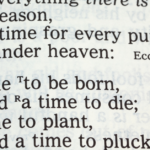Christian retreats have been a cornerstone of spiritual growth and renewal for centuries. As someone who’s participated in and organized many retreats, I can attest to their transformative power.
A Christian retreat provides dedicated time and space for believers to step away from their daily routines and focus on deepening their relationship with God.
When I think back to my first retreat experience, I remember feeling a mix of excitement and apprehension. I wondered what it would be like to disconnect from the world and immerse myself in spiritual practices.
Would I feel out of place or uncomfortable?
These are common concerns, but they often melt away as you settle into the retreat environment.
Christian retreats serve many purposes. They offer time for prayer, reflection, and spiritual growth.
They build community among fellow believers and create a supportive environment to explore faith.
The Roots of Christian Retreats
Christian retreats have a rich history dating back to the early days of the faith. The practice of withdrawing from society for spiritual purposes traces it’s origins to the Desert Fathers and Mothers of the 3rd to 5th centuries.
These early Christian ascetics sought solitude in the deserts of Egypt and Syria, dedicating their lives to prayer, fasting, and contemplation.
As Christianity evolved, so did the practice of spiritual retreats. Monastic traditions, particularly those established by St. Benedict in the 6th century, incorporated regular periods of retreat and contemplation into their daily rhythms.
These practices laid the foundation for the structured retreats we see today.
A significant development in the history of Christian retreats came in the 16th century with Ignatius of Loyola’s “Spiritual Exercises.” This structured program of prayer, meditation, and self-examination became a model for many Catholic retreats and has influenced Protestant retreat practices as well.
Types of Christian Retreats
Today, Christian retreats come in a wide variety of formats, catering to different denominational traditions, age groups, and spiritual needs. Here are some common types:
Silent Retreats
Silent retreats focus on quiet contemplation and prayer, often with minimal interaction between participants. These retreats provide an opportunity for deep introspection and listening to God’s voice without the distractions of daily conversation.
Participants often report profound spiritual experiences and insights during silent retreats.
Guided Retreats
Led by a spiritual director or facilitator, guided retreats often include teachings, group discussions, and structured activities. These retreats provide a balance of personal reflection time and communal learning experiences.
The guidance offered can help participants navigate their spiritual journey more effectively.
Themed Retreats
Themed retreats focus on specific aspects of Christian life, such as marriage, leadership, or healing. These specialized retreats allow participants to delve deeply into particular areas of their faith and life, often providing practical tools and insights for growth in these areas.
Youth Retreats
Designed for young people, youth retreats often incorporate fun activities alongside spiritual content. These retreats aim to make faith relevant and engaging for younger generations, fostering a sense of community among Christian youth and helping them develop a personal relationship with God.
Wilderness Retreats
Wilderness retreats mix outdoor adventures with spiritual practices, emphasizing God’s presence in nature. These retreats can be particularly powerful for those who feel a strong connection to God through creation, offering unique opportunities for reflection and challenge.
Creative Retreats
Creative retreats focus on artistic expression as a form of worship and spiritual growth. These retreats can include activities such as painting, writing, music, or dance, allowing participants to explore their faith through creative outlets.
Service-Oriented Retreats
Service-oriented retreats combine spiritual practices with community service or mission work. These retreats help participants live out their faith in practical ways, often leading to a deeper understanding of Christian service and compassion.
Planning and Participating in a Christian Retreat
Organizing a successful Christian retreat requires careful planning and consideration. Here are some key steps:
Define the Purpose
Clearly articulate the goals and theme of the retreat. This will guide all other aspects of planning and help participants understand what to expect.
A well-defined purpose confirms that all activities and teachings align with the retreat’s overall goals.
Choose the Right Location
Select a venue that supports the retreat’s purpose and provides necessary amenities. The location can significantly impact the retreat experience.
Consider factors such as accessibility, accommodations, available spaces for group activities and personal reflection, and the surrounding environment.
Plan the Schedule
Balance structured activities with free time for reflection and rest. A well-planned schedule should include a mix of group sessions, individual reflection time, meals, and breaks.
Be careful not to overschedule, as participants often need time to process their experiences and connect with others informally.
Prepare Content
Develop teachings, discussions, and activities that align with the retreat’s theme. This may involve creating or selecting study materials, planning worship sessions, and designing interactive exercises.
Ensure that the content is suitable for the expected participants and aligns with the retreat’s goals.
Create a Welcoming Atmosphere
Ensure participants feel comfortable and supported throughout the retreat. This involves considering both physical comfort (such as comfortable seating and suitable room temperatures) and emotional comfort (creating a safe space for sharing and vulnerability).
As a participant, it’s important to approach a retreat with an open mind and heart. Here are some tips for getting the most out of your retreat experience:
Prepare Spiritually
Spend time in prayer before the retreat, asking God to speak to you during this time. This preparation can help you enter the retreat with a receptive heart and mind.
Disconnect
Consider limiting or eliminating use of technology to fully engage in the retreat experience. This can help you focus on your spiritual journey without the distractions of everyday life.
Engage Fully
Participate in all activities and discussions, even if they’re outside your comfort zone. Often, the most growth happens when we push ourselves to try new things or engage in challenging conversations.
Journal
Keep a record of your thoughts, experiences, and insights during the retreat. This can be a valuable tool for reflection both during and after the retreat.
Follow Up
After the retreat, reflect on what you’ve learned and how you can apply it to your daily life. Consider sharing your experiences with others and seeking ways to maintain the spiritual growth you experienced during the retreat.
Challenges and Considerations
While Christian retreats can be powerful experiences, they’re not without challenges. Here are some common issues to be aware of:
Spiritual Overwhelm
The intensity of a retreat can sometimes lead to emotional or spiritual burnout. Participants may experience a range of emotions, from euphoria to deep sadness, as they confront aspects of their faith and life.
It’s important for retreat organizers to be prepared to support participants through these experiences.
Reentry Difficulties
Transitioning back to everyday life after a retreat can be challenging. The contrast between the focused spiritual environment of the retreat and the demands of daily life can be jarring.
Participants may struggle to maintain the spiritual practices or insights they gained during the retreat.
Inclusivity
Ensuring retreats are welcoming to people from diverse backgrounds and experiences can be a challenge. This includes considering factors such as age, gender, race, socioeconomic status, and denominational background.
Retreat organizers should strive to create an environment where all participants feel valued and included.
Balancing Individual and Community Needs
Meeting the varied spiritual needs of all participants while fostering a sense of community can be difficult. Some participants may want more personal reflection time, while others thrive on group interactions.
Finding the right balance is crucial for a successful retreat.
Addressing Doubts and Questions
Creating a safe space for participants to explore their faith honestly, including addressing doubts and difficult questions, is essential. However, this can be challenging, especially in groups with diverse theological backgrounds or varying levels of spiritual maturity.
To address these challenges, retreat organizers can:
- Provide adequate downtime and opportunities for rest to prevent spiritual overwhelm.
- Offer post-retreat support and resources to help participants transition back to daily life.
- Implement inclusive practices and language to confirm all participants feel welcome.
- Allow for both individual and group spiritual experiences to meet diverse needs.
- Create spaces for open, non-judgmental discussions about faith, doubts, and questions.
The Impact of Christian Retreats
Research has shown that participating in spiritual retreats can have significant positive effects on mental health and well-being. Studies have found correlations between retreat attendance and decreased symptoms of depression and anxiety, as well as increased life satisfaction and sense of purpose.
The practices commonly employed during Christian retreats, such as meditation and contemplative prayer, have been linked to changes in brain structure and function associated with improved emotional regulation. These findings suggest that the benefits of retreats extend beyond the spiritual realm and into overall mental and emotional health.
On a personal level, many retreat participants report experiences of profound spiritual growth, renewed faith, and a deeper sense of connection to God and their faith community. These experiences often lead to lasting changes in participants’ lives, influencing their relationships, work, and personal spiritual practices.
Adapting Christian Retreats for the Modern World
As our world becomes increasingly digital and fast-paced, Christian retreats are evolving to meet new challenges and opportunities. Here are some ways retreats are adapting:
Virtual Retreats
Online experiences are now available for those unable to attend in person. Virtual retreats use video conferencing, online resources, and guided practices to create a retreat-like experience from home.
While they may lack the physical separation from daily life that traditional retreats offer, virtual retreats can provide accessibility to those who might otherwise be unable to participate because of distance, health concerns, or other limitations.
Eco-Retreats
Environmental stewardship is increasingly incorporated into retreat themes and practices. These retreats often focus on the connection between faith and care for creation, encouraging participants to see environmental responsibility as a spiritual practice.
Activities might include nature walks, discussions on eco-theology, and practical workshops on sustainable living.
Mindfulness-Based Retreats
Contemplative practices from various traditions are being integrated into Christian retreats. While maintaining a Christian foundation, these retreats may incorporate elements of mindfulness meditation, centering prayer, or other contemplative practices.
This approach can help participants develop a more holistic spiritual practice and learn new ways of connecting with God.
Social Justice Retreats
The intersection of faith and social activism is explored in these retreats. Participants are encouraged to consider how their faith calls them to engage with issues of justice and equality.
These retreats often include education on social issues, discussions on the biblical basis for social justice, and practical training in advocacy and community engagement.
Trauma-Informed Retreats
Safe spaces for healing and spiritual growth are provided for those who have experienced trauma. These retreats are designed with an understanding of how trauma affects people and communities, offering gentle practices and supportive environments for participants to explore their faith and find healing.
Exercises to Deepen Your Retreat Experience
To help you engage more fully with your retreat experience, consider these exercises:
Lectio Divina
Practice this ancient form of Scripture meditation. Lectio Divina involves slowly reading a passage of Scripture many times, allowing different words or phrases to stand out, and reflecting on how God might be speaking to you through the text.
This practice can lead to deep insights and a sense of personal connection with Scripture.
Nature Walk
Take a silent walk, focusing on God’s presence in creation. Pay attention to the details of the natural world around you – the textures of tree bark, the sounds of birds, the feel of the wind on your skin. Use this time to reflect on God’s creativity and care for all of creation, including yourself.
Artistic Expression
Create a piece of art that represents your spiritual journey. This could be a painting, a collage, a poem, or any other form of creative expression.
Don’t worry about artistic skill – the goal is to express your thoughts and feelings about your faith journey in a visual or tangible way.
Letter to God
Write an honest, heartfelt letter expressing your thoughts and feelings to God. This can be a powerful way to articulate your deepest hopes, fears, and questions.
You might write about your current spiritual state, your aspirations for growth, or areas where you’re struggling.
This exercise can help you clarify your thoughts and open up a more personal dialogue with God.
Group Sharing
Participate in a small group discussion about your faith experiences. Sharing your thoughts and listening to others can provide new perspectives and a sense of community.
Be open and honest, and respectful of others’ experiences and viewpoints.
These discussions can often lead to deep connections and mutual support among retreat participants.
Christian retreats offer a unique opportunity for spiritual growth, renewal, and reflection. They provide a space to step away from the noise of everyday life and focus on deepening your relationship with God.
Whether you’re seeking guidance, healing, or simply a chance to recharge your spiritual batteries, a Christian retreat can be a powerful tool in your faith journey.
Key Takeaways:
- Christian retreats have a rich history dating back to early Christian ascetics.
- There are many types of retreats catering to different needs and preferences.
- Careful planning and open-minded participation are key to a successful retreat experience.
- Retreats can have significant positive impacts on mental health and spiritual well-being.
- Modern retreats are adapting to address contemporary challenges and opportunities.
People Also Asked
What happens at a Christian retreat?
Christian retreats typically involve a combination of group activities, individual reflection time, prayer, worship, and teachings. The specific activities can vary depending on the retreat’s theme and purpose.
How long do Christian retreats usually last?
Christian retreats can range from a single day to a week or more. Weekend retreats (Friday evening to Sunday afternoon) are common, but the duration can vary based on the retreat’s goals and participants’ availability.
Are Christian retreats only for adults?
No, Christian retreats are available for various age groups. There are retreats specifically designed for youth, young adults, families, and seniors, as well as retreats open to all ages.
How much do Christian retreats cost?
The cost of Christian retreats can vary widely depending on factors such as duration, location, and amenities. Some retreats are free or low-cost, while others may be more expensive.
Many organizations offer scholarships or sliding scale fees to make retreats more accessible.
Can I go on a Christian retreat if I’m new to the faith?
Absolutely! Many retreats welcome people at all stages of their faith journey, including those who are new to Christianity or exploring their beliefs.
Some retreats are specifically designed for new believers or those curious about the faith.
What should I bring to a Christian retreat?
Common items to bring include comfortable clothing, a Bible, a journal, toiletries, and any medications you need. The retreat organizers will typically provide a packing list with specific recommendations.
Are Christian retreats silent?
Some Christian retreats are silent or include periods of silence, but many are not. The level of silence depends on the retreat’s purpose and style.
Silent retreats are just one type among many.
How do I choose the right Christian retreat for me?
Consider factors such as the retreat’s theme, denomination (if applicable), location, duration, and cost. Reflect on your personal spiritual goals and what type of experience would be most useful for you at this time.
Can I go on a Christian retreat alone?
Yes, many people attend retreats on their own. Retreats can be a great opportunity to meet new people and focus on your personal spiritual journey.
How often should I go on a Christian retreat?
There’s no set rule for how often to attend retreats. Some people go annually, while others may attend more or less often.
Consider your spiritual needs, schedule, and resources when deciding how often to participate in retreats.




